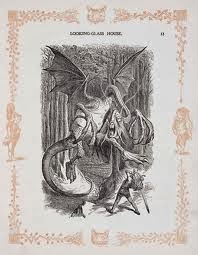Posted
on January 27, 2016
 As
I did when writing about James Watt, I am going to wish Dmitri
Mendeleev a happy birthday on the date he actually used: January 27.
But Mendeleev was born on this date in Russia, in 1834...so this date
is O.S. (Old Style).
As
I did when writing about James Watt, I am going to wish Dmitri
Mendeleev a happy birthday on the date he actually used: January 27.
But Mendeleev was born on this date in Russia, in 1834...so this date
is O.S. (Old Style).
Many
encyclopedias report his birthday as the New Style date of February
8. 1834. (Russia didn't switch to the "New Style" Gregorian calendar until 1918,
about 11 years after Mendeleev died.)
Mendeleev
was born in a village in Siberia. His father was a teacher of fine
arts, politics, and philosophy – but unfortunately he went blind
and lost his teaching position. The family became shaky, financially
speaking, and Mendeleev's mother restarted her family's abandoned
glass factory. However, more bad luck plagued the family: Mendeleev's
father died, and the glass factory burned down.
I'm
not sure what happened to all of Mendeleev's siblings – he had
either 10, 12, 13, or 16 brothers and sisters, depending on what
source you consult! – but Mendeleev was the youngest, and Wikipedia
reports that his mother crossed the entire country to Moscow and then
St. Petersburg to seek a university education for her youngest son.
Although the family was by then quite poor, Mendeleev was able to get an
education and became a chemist.
His
biggest contribution to scientific knowledge was his arrangement of
the elements in a periodic table – the one we use to this day
(although of course expanded with newly discovered elements).
Mendeleev
also used his periodic table to correct the properties of already
known elements and to predict the properties of eight elements that
had not yet been discovered!
Periodically
speaking...
Mendeleev
was not the first scientist to notice the patterns of the elements'
properties – properties such as boiling point, color, ability to
transmit (conduct) electricity, and how reactive they are with other
elements. Several scientists had made similar observations in 1864
and 1865. However, their description of the patterns – or
periodicity – did not gain much notice.
 Mendeleev,
not aware of those scientists' work, had a dream in which the
elements fell into place in a table. He woke from the dream and
scribbled down the arrangement; he later claimed that he only had to
make one small correction to that dream-inspired table.
Mendeleev,
not aware of those scientists' work, had a dream in which the
elements fell into place in a table. He woke from the dream and
scribbled down the arrangement; he later claimed that he only had to
make one small correction to that dream-inspired table.
In
1869, Mendeleev made a formal presentation of his periodic table to
the Russian Chemical Society. He gained international fame and many
honors for this work. Although many thought Medeleev should have
received a Nobel Prize in Chemistry, there is a crater on the Moon
named for this scientist, and the chemical element mendelevium (Md)
is also named for him.
 By
the way, Mendeleev also investigate petroleum and helped to found the
first oil refinery in Russia.
By
the way, Mendeleev also investigate petroleum and helped to found the
first oil refinery in Russia.
Celebrate!
- Check out this NeoK12 YouTube video.
Also
on this date:
Author
Lewis Carroll's birthday
Plan ahead:
Check
out my Pinterest pages on:
And
here are my Pinterest boards for:









No comments:
Post a Comment